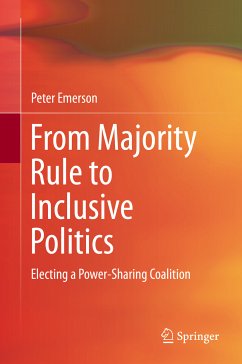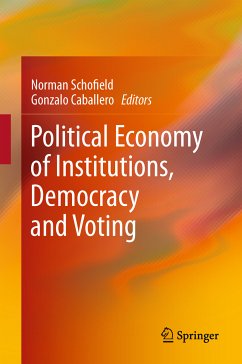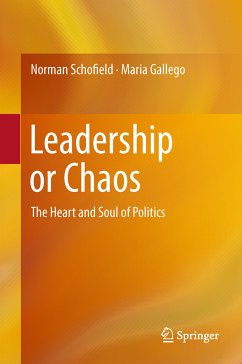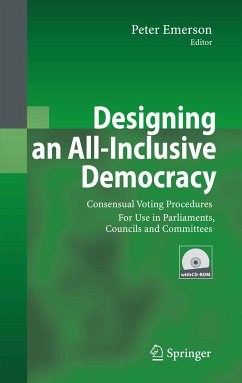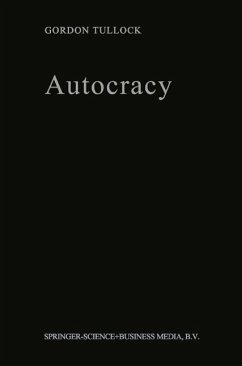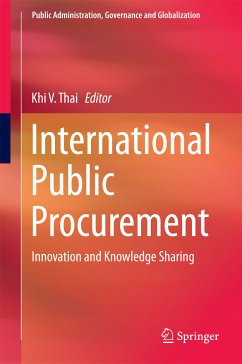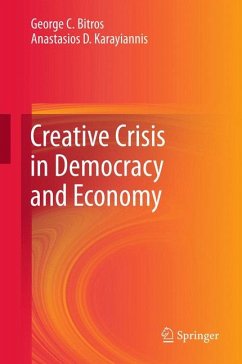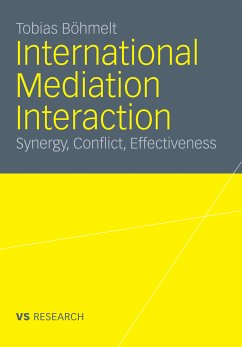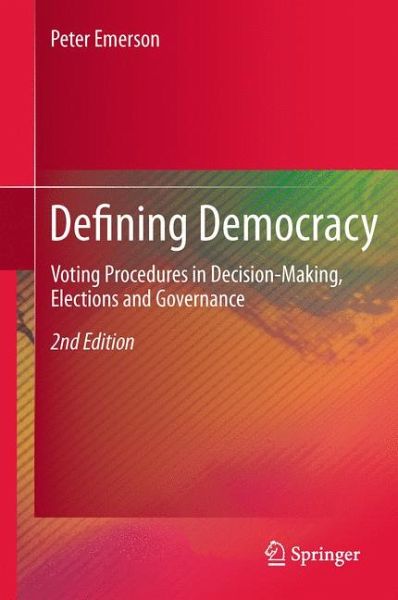
Defining Democracy (eBook, PDF)
Voting Procedures in Decision-Making, Elections and Governance
Versandkostenfrei!
Sofort per Download lieferbar
72,95 €
inkl. MwSt.
Weitere Ausgaben:

PAYBACK Punkte
36 °P sammeln!
Defining Democracy looks both at the theory of why and the history of how different voting procedures have come to be used - or not, as the case may be - in the three fields of democratic structures: firstly, in decision-making, both in society at large and in the elected chamber; secondly, in elections to and within those chambers; and thirdly, in the various forms of governance, from no-party to multi-party and all-party, which have emerged as a result.
Dieser Download kann aus rechtlichen Gründen nur mit Rechnungsadresse in A, B, BG, CY, CZ, D, DK, EW, E, FIN, F, GR, HR, H, IRL, I, LT, L, LR, M, NL, PL, P, R, S, SLO, SK ausgeliefert werden.




